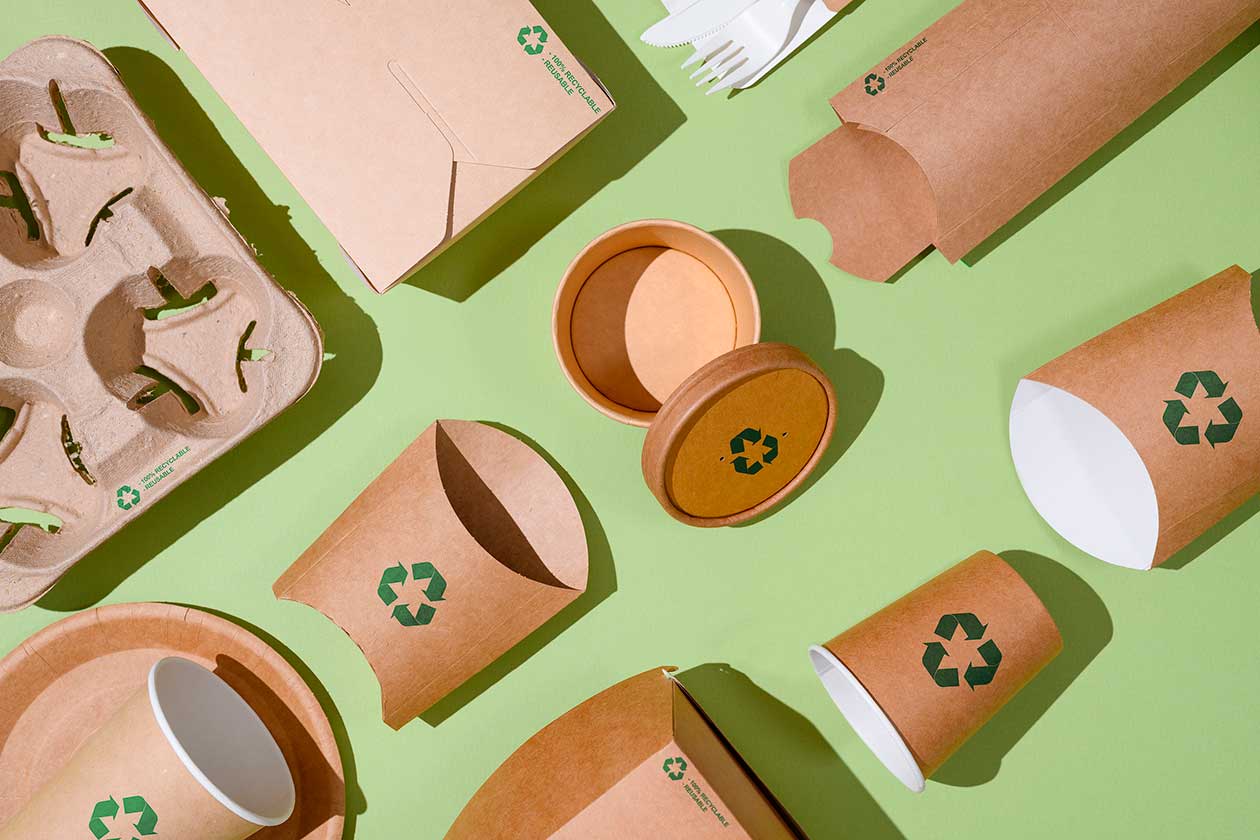The growing interest in the use of paper packaging in the food packaging sector is a fact primarily due to the search for more sustainable materials that allow companies to meet the objectives set by the EU.
2030 Target: 100% of EU packaging to be reusable or recycled profitably
In 2018, the EU published the Plastics Strategy in the Circular Economy, which set the main objective that by 2030, 100% of the packaging placed on the European market must be reusable or recycled profitably.
To meet the EU’s objectives, food companies demand new packaging solutions with recyclable or compostable materials. In this context, the paper industry is making a strong breakthrough in the food sector. Here are some examples of packaging manufacturers that have already begun to develop paper-based solutions.
Innovative paper-based food packaging solutions
- Carton trays for packaging fresh products (fruits and vegetables): For example, Smurfit Kappa has introduced the Safe&Green range, a line of cardboard trays that are 100% renewable, recyclable, and biodegradable, designed for packaging fresh products such as fruits and vegetables.
- Thermo-sealable cardboard trays for packaging fresh foods (meat or fish): Several manufacturers have begun to develop thermo-sealable cardboard trays that could replace plastic trays typically used for packaging fresh products such as meat or fish. This is the case with HaloPack®, marketed by Hinojosa. Additionally, at AINIA, we have developed an innovative thermoformable and heat-sealable cardboard tray, available in various formats for packaging a wide variety of products under modified atmosphere.
- Paper flexible packaging for pet food packaging: Regarding flexible packaging, some companies, such as Mondi, are also working on the development of paper-based flexible packaging, which is being marketed by the German pet food producer Interquell.
- Paper flexible packaging for single-dose packaging: On the other hand, as introduced by Nestlé in MeetingPack Virtual 2021, the company is already starting to incorporate paper packaging for some of its products, such as single-dose sachets of Nestquik or for the Smarties brand.
- Paper bottles for soda packaging: Meanwhile, cellulose-based bottles have received a significant boost since Pulpex, a joint venture of Diageo and Pilot Line, partnered with various companies to produce paper bottles for different products, including liquid foods. For example, the partnership between Pulpex and PepsiCo is investigating the possibility of launching paper-based soda bottles using Pulpex technology. Additionally, other companies like Carlsberg are also working on the development of such innovative paper-based solutions.
The challenge of composite packaging
Currently, most paper-based packaging on the market features a functional plastic barrier that provides them with water resistance, helps improve the barrier properties of the packaging, offers sealing capability, and contributes to food safety by preventing migrations of substances that could come from recycled cellulose material, among other benefits.
These composite packages are currently neither recyclable nor compostable, and consequently, they contribute to the current recycling rates of paper in Spain, which currently hover around a significant 75%. However, this percentage is considered to be at risk due to the widespread introduction of paper with attached plastic material intended for food packaging.
Roler, Aspapel, and Repacar advocate for cardboard as an alternative in food packaging
Regarding the paper sector in food, the recyclability of cardboard packaging, the challenges it faces, and its trends, representatives from associations such as the Spanish Association of Paper and Cardboard Recyclers (Repacar), the Spanish Association of Paper, Pulp, and Cardboard Manufacturers (Aspapel), and the meat company Roler will share their experience at the event on the emergence of paper/cardboard as an alternative in food packaging.




